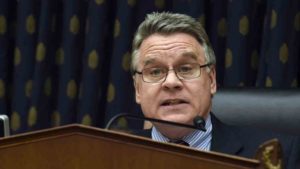Congressman Smith urges Senate to pass legislation combating opioid crisis
Congressman Chris Smith today called upon his colleagues in the U.S. Senate to take swift action on a series of bills that passed this House this week which boost the federal response to the opioid crisis with support for victims and service providers.
The legislation passed this weeks targets $3.3 billion in funding that was part of the 2018 omnibus spending bill signed into law by President Trump earlier this year.
“As the opioid epidemic continues to proliferate, our efforts to treat and prevent this disease at the federal level must be redoubled,” Smith said. “This crisis requires a more aggressive and comprehensive response to the problem, which is exactly what this package of bills will accomplish. The Senate needs to pass this legislation as quickly as possible—the severity of the crisis demands it.”
Smith said the legislation passed in the House this week will create a “comprehensive response to the epidemic,” with new grants to “improve and expand access to treatment and recovery services, establish comprehensive opioid recovery centers, support law enforcement, and improve and enhance data collection and analysis.”
Some of the key provisions advanced by the bills will:
- Connect and compile various resources on the opioid crisis at the Department of Health and Human Services (HHS)
- Increase grants for medical providers treating opioid abuse
- Educate professionals working with children on how to recognize and treat child trauma from opioid abuse by adults
- Better facilitate access to treatment for veterans struggling with opioid addiction
- Increase the number of female peer counselors for female veterans who are leaving or who have just left military service
- Confront the rising cases of HIV, hepatitis C and other infections stemming from drug-use, as part of Rep. Leonard Lance’s (R-NJ) Eliminating Opioid-Related Infectious Diseases Act
In New Jersey in 2016, there were 1,584 deaths from overdoses of opioids including heroin, prescription opioid painkillers, fentanyl, and synthetic opioids. New Jersey has one of the highest opioid overdose death rates in the nation for individuals age 35 and younger.
“Many of us know someone who has become addicted to opioids,” Smith stated. “I’ve met with advocates and have heard the heartbreaking stories from families of individuals who have suffered from opioid addiction. On a federal level, we must do all we can to support those affected by this crisis—patients and their families, medical caregivers, and law enforcement and first responders.”











